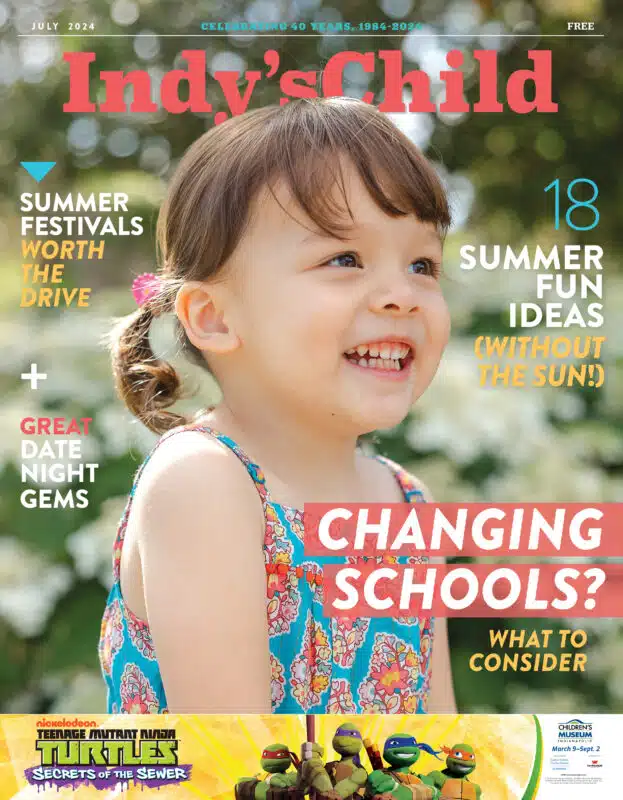Watch what happens to a room full of young children when they hear a song. They clap, they sing, they smile, they dance. Music has an instant effect on children, and from early on it permeates their lives. Lullabies are played in nurseries to help newborns sleep, parents sing to soothe crying babies and many children first learn the alphabet by song. Music elicits an emotional, intellectual and physical response – and it helps us to learn. Literacy, language and math skills can all be positively influenced by music.
It’s easy to see why encouraging musical exploration with your little one is worthwhile. What are some simple ways to start? Try these ideas to start incorporating music into your child’s world.
Try a music class
Hillary Blake, Director of Education at Meridian Music School in Carmel, says, “Early childhood group music classes help students learn concepts of listening, sharing and taking turns. There are many benefits to exposing children to music at an early age.” Meridian Music School offers a piano-based curriculum called Harmony Road Music Class for children as young as 18 months.
Musical Beginnings provides Kindermusik and Simply Music classes for children from birth to seven years, with studios in Westfield and Carmel. Instructors involve parents in the learning process, using the latest research and teaching them the “why” behind the activities. They also believe there is no “right” way to explore and create, and will celebrate each child’s unique learning style.
Lauren Southard, Director of Outreach and Choir Programs for the Indianapolis Children’s Choir has seen firsthand the social and emotional growth that takes place when a child becomes involved in music, and especially performance, saying “It takes a level of comfort, maturity and confidence that few adults possess to stand in front of their peers and sing a song from the heart.”
Make an instrument
There are many items around your house just waiting to be transformed into musical instruments. For example, see what happens when you fill a milk jug with beans, seal it shut and hand it to your child for some shaking and music making. Try filling other containers with rice or other objects for different sounds.
Have a family musical performance
After you create your instruments, gather for a performance. Sing a familiar tune, or come up with one of your own. Discover the joy of rhythm as you tap out the beats with your toes and clap your hands. Encourage self-expression and confidence with a solo performance.
Think about differences in sound
What happens when you hit a glass with a spoon? What happens when you fill that glass with water? What common sounds do you hear in your house? What do you hear outside? Go on a sound walk and ask your child about the different sounds they hear. Take it one step further and bring a journal and crayons along. Have your child draw a picture to show what they heard and experienced on their walk.
Listen to different types of music
There are so many styles of music and it benefits your child to be exposed to many different varieties. “Tune in to a new style of music in the car every once in a while,” says Southard. “What a great connection to be able to say this is the music that grandpa likes to listen to, in contrast with what mom listens to.” She also suggests attending different cultural festivals to experience music in new and authentic ways.
Attend family friendly concerts
Opportunities to take advantage of musical performances abound in the Indy area, and according to Blake: “One of the best ways to expose children to music at a young age is to attend family friendly concerts.” Many Indianapolis Symphony Orchestras offer a family concert at least once a year. Check out the Indy’s Child Calendar of Events to find out what’s happening near you.
Model the joy of music
“Most importantly, parents need to model the idea that anyone can make music and the music they create is valuable in its own way,” says Southard. “Sing when the mood strikes you. Be silly. Sing the to-do list while you’re driving and running errands. Move to the music in a natural way without looking to see who is watching.” She says it’s important to show your children how much you enjoy music and to embrace the music they will undoubtedly create for you.
Whether your child makes their own rhythm by banging pots and pans in the kitchen, dances to a rock song in the family room or attends a concert to hear the sounds instruments make, each experience allows them to experience the joy of creating and listening to music.







